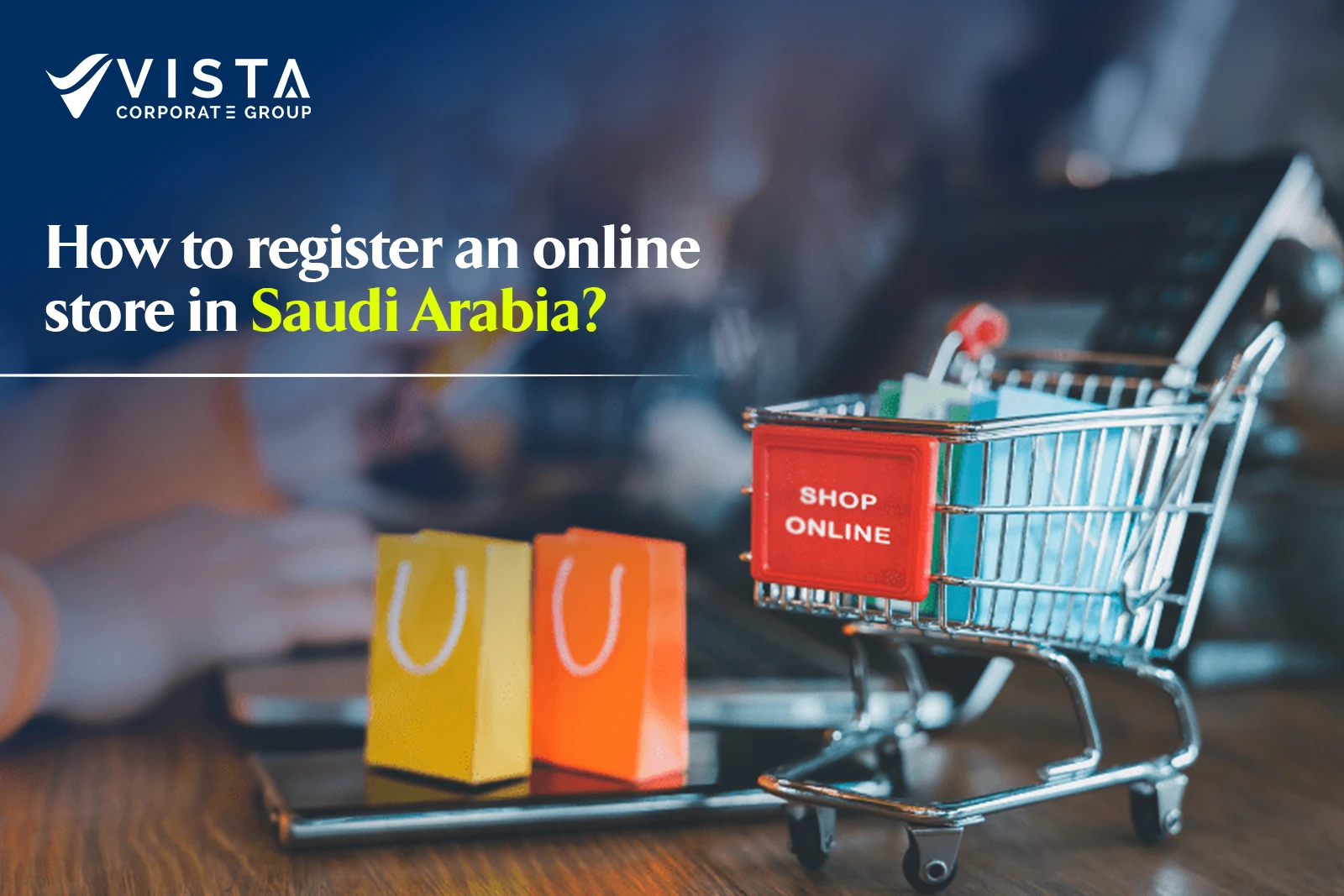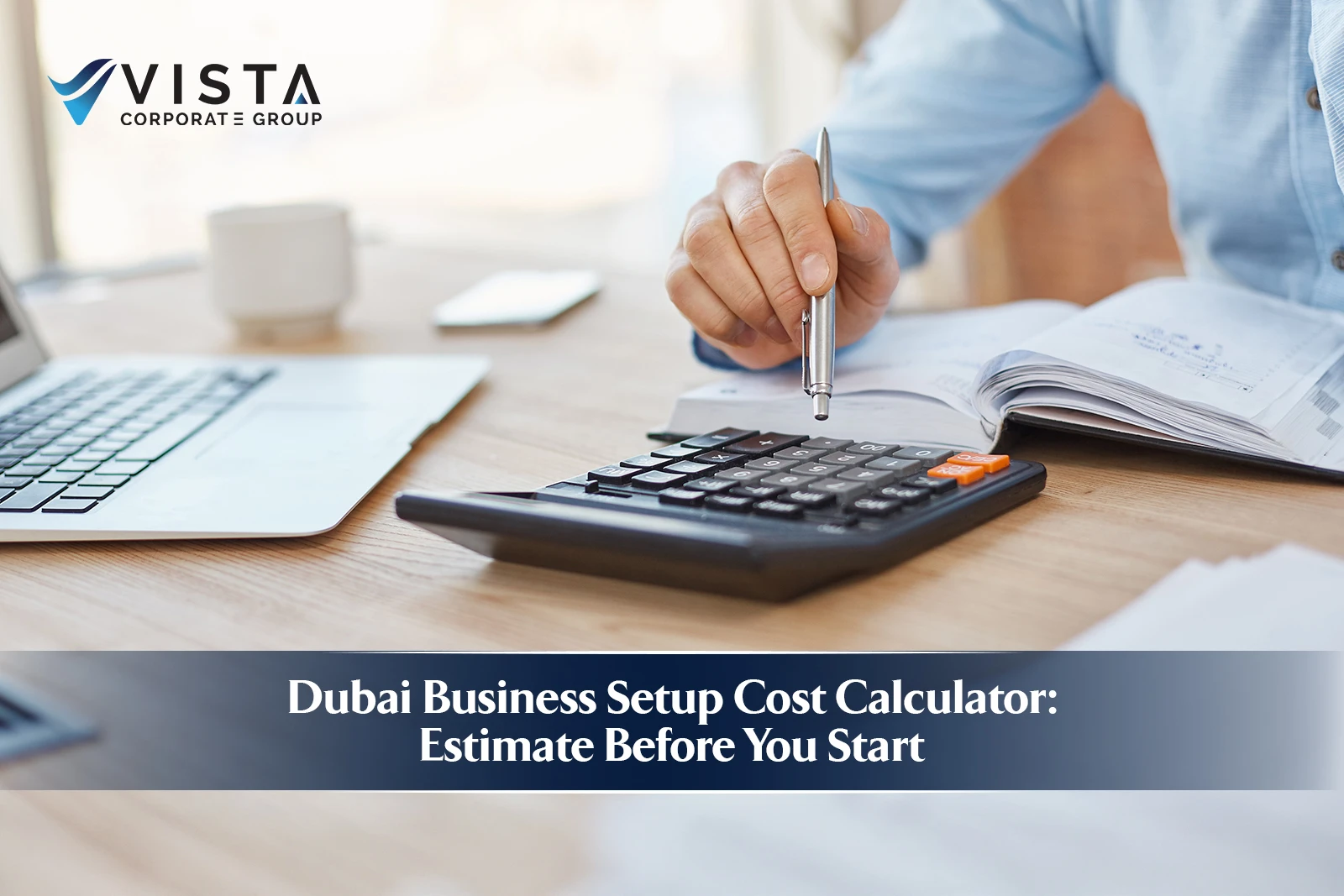
Starting an online business in the UAE has never been more exciting. With the government actively promoting digital transformation, foreign ownership reforms, and an economy booming with e-commerce opportunities, the UAE has become a global hotspot for aspiring entrepreneurs. Whether you are based in the UAE or abroad, setting up an online business here is both lucrative and accessible — provided you follow the right steps.
This guide will walk you through everything you need to know about how to start an online business in UAE, including legal requirements, costs, licenses, and pro tips to succeed.
Why Start an Online Business in the UAE?
The UAE offers one of the most dynamic and supportive environments for online businesses globally. Thanks to initiatives like the UAE Digital Economy Strategy, the country aims to double the contribution of the digital economy to its GDP by 2032. E-commerce sales alone are expected to reach $8 billion by the end of 2025, making it a fertile ground for new online ventures.
The absence of personal income tax, easy access to international markets, world-class logistics infrastructure, and robust cybersecurity laws further enhance the appeal. For digital entrepreneurs, the UAE is not just a place to sell — it’s a platform to scale globally. Plus, the licensing frameworks are simplified to support various models like e-commerce stores, freelancing, and consultancy services.
Types of Online Businesses You Can Start in the UAE
The UAE’s digital economy is diverse, allowing entrepreneurs to explore multiple online business models. One of the most popular choices is setting up e-commerce stores, selling anything from electronics to handmade crafts. With platforms like Amazon.ae and Noon.com thriving, there’s no shortage of market access. If products aren’t your thing, you can dive into digital marketing services, offering SEO, social media management, or advertising consultancy to the region’s growing SMEs. Online coaching and e-learning courses are also in demand, especially in areas like business development, fitness, and personal finance.
Another lucrative model is freelancing. Whether you’re a graphic designer, copywriter, or web developer, UAE Free Zones like Fujairah Creative City offer affordable freelance permits. You can also explore dropshipping businesses, where you sell products without maintaining inventory.
Other profitable models include:
- SaaS startups offering cloud solutions
- Affiliate marketing websites
- Content creation (YouTube, Podcasts, Blogs)
The key is to align your business idea with your skills, the market’s needs, and scalability potential. Choosing the right model can set the foundation for your long-term success in the UAE’s fast-evolving online economy.
Legal Requirements to Start an Online Business in UAE
Starting an online business in the UAE isn’t just about launching a website — it’s about operating legally and earning customer trust. First, you’ll need a Trade License. Depending on your business model, you may opt for an E-commerce License, a Freelance Permit, or a Portal License if you’re building a marketplace platform. Next, you must choose whether to set up in the Mainland, a Free Zone, or Offshore. Each jurisdiction has different regulations, fees, and advantages. For example, Free Zones like IFZA or Dubai CommerCity specialize in supporting online businesses with streamlined processes and lower setup costs.
A critical legal step is Business Name Registration. Your company name must comply with UAE naming conventions — meaning no offensive words, religious references, or abbreviations without approvals. Finally, you must ensure compliance with UAE Cybersecurity Laws. Protecting consumer data, ensuring secure payment gateways, and respecting intellectual property rights are non-negotiable in the UAE’s digital commerce framework. Some businesses may also need approvals from authorities like the Telecommunications and Digital Government Regulatory Authority (TDRA).
Skipping these legal steps can result in penalties, license cancellation, or reputational damage — so getting it right from day one is essential.
Which Licenses to Start Online Business in UAE?
Choosing the right license is the first official step when you start an online business in UAE. The license you need depends on your business activity, structure, and where you want to operate from. The most common option is the E-commerce License, which allows you to sell products and services online legally across the UAE and internationally. If you are a solo entrepreneur offering digital services like writing, marketing, design, or consulting, a Freelance Permit is ideal. It’s cost-effective and simpler to manage without the need for a full-fledged company setup. Those who plan to create online marketplaces — platforms where others sell products or services — will require a Portal License.
For content creators like bloggers, podcasters, and YouTubers, some Free Zones offer a Media License, enabling you to monetize your content legally.
Popular Free Zones offering online business licenses include:
- IFZA Dubai (cost-effective packages for e-commerce)
- Sharjah Media City (SHAMS) (great for media and freelancing)
- Dubai CommerCity (ideal for larger e-commerce businesses)
Selecting the wrong license can limit your business operations or lead to legal hurdles later, so it’s important to get professional advice during the selection process.
How to Start an Online Business in UAE: Step-by-Step
Starting your online business in the UAE may seem overwhelming, but when broken down into clear steps, the process becomes straightforward and achievable. Here’s a detailed roadmap to guide you:
Step 1: Choose Your Business Activity and Model
Your first step is deciding what exactly you will offer — products, services, or content. Will you be selling physical goods, offering digital marketing services, or launching an online course platform? Your business model — whether it’s dropshipping, coaching, freelancing, or SaaS — determines the type of license you’ll need and your marketing strategy.
Spend time researching:
- Market demand in the UAE and GCC
- Competition analysis
- Pricing strategies
- Long-term scalability of your niche
Choosing the right model upfront ensures you’re entering a space with real growth potential, not just following a trend. Always validate your idea before investing time and money.
Step 2: Select the Jurisdiction: Mainland vs Freezone vs Offshore
The UAE offers three options for setting up your business:
- Mainland: Operate anywhere in the UAE and globally. Requires DED license.
- Freezone: 100% foreign ownership, tax benefits, quicker setup. Best for online-only businesses.
- Offshore: No physical presence in UAE, mainly for holding companies or international trade.
For most small-to-medium online businesses, Free Zones like IFZA, SHAMS, or Dubai CommerCe city are ideal because they offer affordable e-commerce licenses, easy setups, and minimal restrictions.
Tip: Compare the setup costs, ownership rights, and renewal fees before choosing your jurisdiction.
Step 3: Register Your Company Name
Next, you need to reserve and register a trade name for your company. The name must:
- Be unique and not used by any other registered entity.
- Avoid offensive or religious terms.
- Not include country names, unless approved (e.g., “Dubai Traders”).
You can usually check name availability online through Free Zone or DED portals. Once approved, the name reservation certificate is valid for up to 6 months, giving you time to complete the licensing process.
Step 4: Apply for the Relevant License
Once your business name is approved, you can apply for your business license. Documents typically required include:
- Passport copies of shareholders
- Visa copy (if applicable)
- Trade name reservation certificate
- Application form
- Business plan (some Free Zones may request)
The licensing process takes around 2 to 7 working days depending on the Free Zone or Mainland authority you choose. Free Zones like IFZA even offer fully remote license setups.
Important: Some Free Zones offer package deals that include your license, visa, and even a flexi-desk — making it easier and more affordable for startups.
Step 5: Open a Corporate Bank Account
Once your license is issued, you’ll need a corporate bank account for transactions. UAE banks require:
- Valid trade license
- Company incorporation documents
- Shareholder documents
- Business plan or company profile
Popular banks for online businesses include Emirates NBD, Mashreq Bank, and RAKBANK. You can also explore international digital banks like Wio Bank or Zolve for startups with less complex banking needs.
Tip: Always compare minimum balance requirements, fees, and online banking features before choosing a bank.
Step 6: Build Your Online Presence
Your website is your storefront. Make sure it’s:
- Mobile-friendly and fast-loading
- SEO-optimized for search engines
- Secure (SSL certificates are a must)
Choose reliable hosting services like Bluehost, GoDaddy, or UAE-based providers like Etisalat Hosting.
Don’t forget social media — setting up business pages on Instagram, LinkedIn, TikTok, and Facebook is crucial for visibility.
Your brand identity online is just as important as your business plan.
Step 7: Payment Gateway Setup
Without payment options, you’ll lose customers. In the UAE, trusted payment gateways include:
- PayTabs
- Telr
- Stripe
- PayPal
Each provider has different commission rates (typically between 2% to 5% per transaction). Some Free Zones have partnerships that help you integrate these gateways faster.
Tip: Always offer multiple payment options (credit cards, Apple Pay, PayPal) to cater to all audiences.
Step 8: Market Your Business
Launching is just the beginning. You must actively promote your online business using:
- Search Engine Optimization (SEO) to drive organic traffic
- Pay-Per-Click (PPC) Ads on Google and Meta
- Content marketing like blogs, videos, and lead magnets
- Influencer marketing collaborations for brand credibility
Also, use email marketing to nurture leads and build customer loyalty over time. Marketing should not be a “one-time launch plan” — it needs continuous effort to scale your business.
Costs of Starting an Online Business in UAE
Starting an online business in the UAE offers flexibility, but it’s important to plan your budget carefully. Depending on the jurisdiction you choose (Mainland, Free Zone, or Offshore) and the scale of your business, costs can vary significantly. On average, a small-to-medium online business setup will cost between specific range at the initial stage.
Here’s a detailed breakdown of common expenses:
| Item | Notes |
|---|---|
| E-commerce License (Free Zone) | Varies based on Free Zone and package inclusions |
| Visa (Optional) | Residence visa for owner or employees; not mandatory |
| Flexi Desk or Co-working Space | Some Free Zones offer complimentary options; useful for address proof |
| Website Development & Hosting | Cost depends on complexity and chosen platform |
| Payment Gateway Setup | Providers typically charge per transaction; compare rates carefully |
| Branding & Logo Design | Not mandatory, but helps establish a professional image |
| Marketing & Advertising Budget | Can include Google Ads, Meta Ads, SEO, influencer collaborations, etc. |
Important Tip: Many Free Zones offer bundled packages where licensing, visas, and even basic office facilities are included at discounted rates, especially if you commit for 2–3 years upfront.
Besides these initial costs, you should also consider recurring expenses like website maintenance, annual license renewal fees, banking charges, and continuous marketing campaigns.
A realistic and well-planned financial blueprint ensures you don’t face cash flow surprises later and helps you scale your online business confidently.
Benefits of Starting an Online Business in Dubai
Setting up an online business in Dubai offers numerous advantages that make it one of the most attractive destinations for entrepreneurs worldwide. Firstly, the UAE has a zero percent personal income tax, meaning your profits are yours to keep. Businesses operating within Free Zones often enjoy full repatriation of profits and no import/export duties, which is a rare advantage globally. Dubai’s strategic location also offers excellent global market access. With world-class logistics hubs like Jebel Ali Port and Dubai International Airport, shipping products internationally becomes seamless and cost-effective. For digital services businesses, Dubai’s robust digital infrastructure ensures fast, reliable internet connections, secure payment systems, and cyber protection.
Another important benefit is the availability of entrepreneur-friendly visa programs. Startup founders can easily secure residency visas through Free Zones, enabling them to live, work, and even sponsor family members in the UAE. Innovation is at the heart of Dubai’s economic policy. Initiatives like Dubai’s E-commerce Strategy and the UAE’s Digital Economy Strategy provide strong regulatory support for online businesses.
In short, setting up in Dubai not only connects you to a booming local market but also gives you a launchpad to grow globally with one of the world’s most supportive business ecosystems.
Online Business in Dubai from Home: Is it Possible?
Yes, absolutely! Starting an online business from home in Dubai is not only possible but increasingly common. The UAE government has introduced several flexible licensing options that allow entrepreneurs to operate legally from their residence without needing a traditional office space. For instance, Free Zones like Fujairah Creative City, SHAMS, and RAKEZ offer home-based business permits that are perfect for solopreneurs, freelancers, and small e-commerce owners. Some of these packages even include a Flexi Desk option, allowing you to maintain a minimal physical presence if ever required for compliance purposes.
Additionally, with the rise of virtual offices and e-commerce-specific licenses, you can legally register a business address without renting a full-time office. These setups are ideal for online sellers, digital marketers, consultants, and course creators who primarily operate digitally. However, it’s important to note that while running your business from home is allowed, you must still have a valid trade license issued by an approved authority. Operating without one can lead to fines and penalties under UAE law.
Bottom line: With the right license, you can launch, operate, and grow your entire business from the comfort of your home in Dubai.
Online Company Registration in Dubai: How It Works
Registering a company online in Dubai is now faster, easier, and more affordable than ever. Thanks to digital transformation initiatives by the UAE government and Free Zones, you can complete the entire business setup process remotely, without needing to physically visit Dubai.
Here’s a step-by-step overview of how online registration works:
- Choose your business activity: Select whether you’re selling products, offering services, or launching a marketplace.
- Pick your jurisdiction: Decide between Mainland (through Dubai Economy – DED) or Free Zones like IFZA, SHAMS, or RAKEZ.
- Reserve your trade name: Submit your preferred company name online for approval.
- Apply for a business license: Upload necessary documents such as passport copy, visa page, and completed application forms.
- E-sign contracts: Many Free Zones offer electronic signature options for Memorandum of Association (MOA) and license agreements.
- Receive your license digitally: Once approved (in 2–7 business days), you receive your e-license via email.
- Open your corporate bank account: With your trade license, start setting up a bank account to begin transactions.
Free Zones like IFZA and SHAMS offer portals where you can complete the full setup online in just a few clicks, making it ideal for international entrepreneurs and UAE residents alike. With online company registration, starting a business in Dubai is as easy as shopping online — quick, secure, and hassle-free.
How to Start a Business in UAE as a Foreigner
Good news for international entrepreneurs: starting a business in the UAE as a foreigner is easier today than ever before. The UAE government has removed the requirement for local sponsors in many sectors, meaning you can now have 100% ownership of your business in most Mainland and Free Zone setups.
Here’s how foreigners typically set up an online business in the UAE:
- Choose a Free Zone: Free Zones like IFZA, SHAMS, RAKEZ, and Dubai CommerCity are particularly foreigner-friendly, offering full ownership, streamlined licensing, and quick visa processing.
- Apply for a trade license: Submit passport copies, a recent photograph, and an application form. Some Free Zones even allow remote applications without the need for UAE residence at the start.
- Secure a UAE residence visa (optional but beneficial): Entrepreneurs often apply for an investor or freelancer visa, allowing them to live, work, and sponsor dependents in the UAE.
- Open a corporate bank account: Choose a bank that supports businesses owned by non-residents, and prepare the necessary documentation, including a valid license and UAE address.
No matter where you’re from, you can establish a legal presence in the UAE and leverage Dubai’s thriving digital economy. With minimal bureaucracy and strong government support for foreign investment, Dubai truly welcomes entrepreneurs from every corner of the world.
How to Start an Online Business in the UAE from India
If you’re based in India and want to tap into the UAE’s booming online business market, you’ll be happy to know that you can start your business remotely without relocating immediately. Many Free Zones and government portals offer full online setup services, enabling Indian entrepreneurs to open companies in Dubai from the comfort of their homes.
Here’s how to start an online business in the UAE from India:
- Select a Free Zone: Choose a Free Zone that supports e-commerce activities and remote setup — popular choices include IFZA, SHAMS, and RAKEZ.
- Apply for a business license remotely: Submit scanned copies of your passport, passport-size photo, application form, and preferred trade name.
- Use local service agents if needed: Some Free Zones offer PRO services to handle documentation, bank account opening support, and visa processing for you.
- Open a UAE bank account: Some banks allow account opening with remote KYC procedures. Alternatively, you can visit Dubai briefly for final signing if required.
- Apply for a UAE residence visa (optional): If you plan to relocate in the future, your Free Zone setup often includes investor visa eligibility.
Many Indians successfully run dropshipping stores, digital marketing agencies, freelance services, and consultancy businesses in the UAE without shifting permanently. Dubai’s open business environment makes cross-border entrepreneurship seamless and scalable.
Key Mistakes to Avoid When Starting an Online Business in UAE
While setting up an online business in the UAE is a straightforward process, many entrepreneurs make mistakes that cost them time, money, and opportunities. Avoiding these common pitfalls can greatly increase your chances of success.
1. Choosing the Wrong License
Many first-time business owners pick an inappropriate license type or jurisdiction (Mainland vs Free Zone), leading to operational restrictions or higher renewal fees. Always ensure your license covers all your planned activities — from selling physical goods to providing digital services.
2. Ignoring UAE E-Commerce Laws
The UAE has strict regulations around online sales, data privacy, and advertising. Non-compliance can result in hefty fines or even license suspension. Make sure your website complies with UAE cyber laws, terms and conditions policies, and data protection guidelines.
3. Underestimating Business Costs
New entrepreneurs often budget only for licensing fees, overlooking ongoing expenses like website maintenance, payment gateway charges, marketing, and visa renewals. Building a realistic financial plan is crucial to sustaining your business long-term.
4. Poor Market Research
Launching without validating your business idea can lead to entering oversaturated or low-demand markets. Invest time in understanding your target customers, competition, and unique selling proposition (USP).
5. Weak Digital Marketing Strategy
Building a website isn’t enough — you must drive traffic consistently through SEO, PPC ads, content marketing, and social media. Without a strong online presence, even the best products or services can fail to reach the right audience.
Pro Tip: Always consult with professional business setup advisors before registering your company to avoid costly errors.
By avoiding these mistakes, you can establish a solid foundation for a thriving and legally compliant online business in the UAE.
Conclusion: Your Roadmap to Launching an Online Business in the UAE
Starting an online business in the UAE is no longer a dream reserved for a few — it’s an accessible opportunity open to anyone with the right strategy, commitment, and a clear understanding of the process. Whether you’re a local resident, a foreign entrepreneur, or operating remotely from India, Dubai’s digital ecosystem offers unmatched advantages like 100% ownership, low taxes, global market reach, and a future-ready economy. By following the step-by-step guide we shared — choosing the right business model, picking the appropriate jurisdiction, securing the right license, setting up your online presence, and building a strong marketing strategy — you’ll be well-positioned to launch a profitable online venture.
Remember, it’s not just about starting; it’s about starting smart. Avoid common mistakes, stay compliant with local laws, invest in digital marketing, and continuously adapt to the evolving online landscape.
Dubai is ready for your business. The only question left is: are you ready to seize the opportunity? If you’re looking for professional help to set up your online business smoothly, book a free consultation with our expert team today. We’ll help you turn your idea into a registered, thriving online business in the UAE.
FAQs About Starting an Online Business in the UAE
Which Online Business In UAE Should I Start?
E-commerce, digital marketing services, dropshipping, freelancing, and online coaching are among the most profitable online businesses in the UAE. Choose one based on your skills, interests, and market demand.
How much does it cost to start an online business in UAE?
The setup cost typically ranges from some amount, depending on your chosen Free Zone, license type, visa requirements, and other operational expenses.
Steps for Setting Up an Online Business in Dubai
Choose your business activity ➔ Select jurisdiction ➔ Reserve trade name ➔ Apply for business license ➔ Open corporate bank account ➔ Launch website ➔ Start marketing.
Benefits of Starting an Online Business in Dubai
Benefits include 0% personal income tax, global market access, advanced digital infrastructure, supportive regulations, easy company formation, and flexible visa options for entrepreneurs.
Online Business in Dubai from Home
Yes, you can legally operate an online business from home with an appropriate e-commerce or freelance license. Free Zones like SHAMS and RAKEZ offer home-based business permits.
Online Company Registration in Dubai
Company registration can be completed online through Free Zone portals like IFZA and SHAMS. It typically takes 2 to 7 working days to receive your license after document approval.
How to start a business in UAE as a foreigner
Foreigners can fully own Free Zone companies and most Mainland businesses. Apply for a license, secure a UAE address, open a corporate bank account, and optionally apply for a residence visa.
How to start an online business in the UAE from India
Indians can start remotely by applying for a Free Zone license online, reserving a trade name, and opening a UAE bank account. Visa applications are optional unless relocation is planned.




